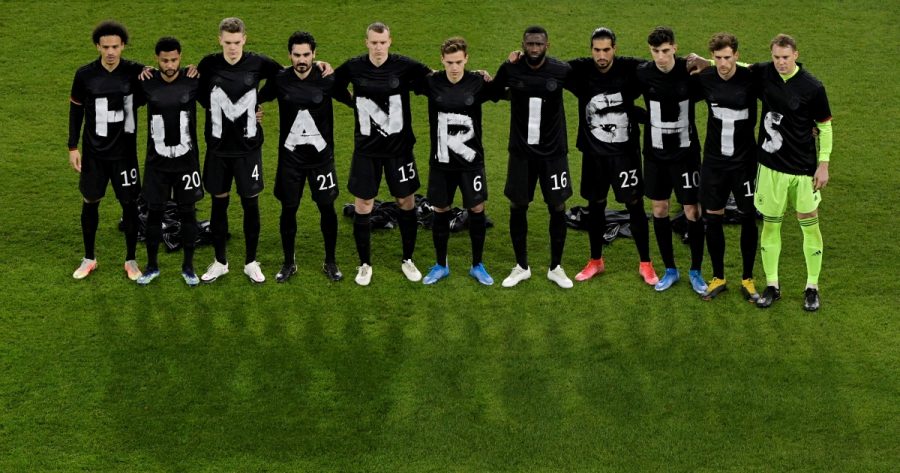2022 FIFA World Cup: Qatar’s Cup of Shame
The German soccer team protests treatment of migrant workers used in preparing for the 2022 FIFA World Cup in Qatar.
The 2022 FIFA World Cup is scheduled to be the 22nd running of the FIFA World Cup competition. Just around the corner, football fans and spectators are already getting excited for the biggest sporting event in the world.
On Dec. 2, 2010, it was announced that Qatar will host the 2022 FIFA World Cup, and ever since then, preparations had begun to get everything ready for the big tournament. The tournament is scheduled to run from Nov. 21 through Dec. 18, 2022. The announcement back in 2010 was a huge deal because it meant that this would be the first World Cup held in the Arab World: good and bad news for many people. Good news for the rich company owners and investors but very bad for the migrant workers that will be needed to prepare for and stage the tournament.
In order for workers to come into Qatar and work, they must pay a recruitment agency. This price ranges from $500 to $4,000, and in most cases, workers must take out a loan in order to pay the fee. Men are forced into this decision in order to escape the poverty and unemployment in their home countries, leaving behind their families in order to provide for them.
Workers are also forced to live in dirty and cramped living conditions in order to cut costs. In many cases, salaries are much lower than originally promised by recruitment agencies, but workers don’t have any other choice because any money for them is better than not having a job at all.
Sometimes workers’ salaries aren’t paid for months after the fact, which leaves workers without food, water, and unable to sustain their families back home. Migrant workers are threatened with job termination and jail time if they complain about the work conditions, and as soon as they arrive on the worksite, their passports are confiscated in order to keep them in the country working.
“It’s completely unfair to put human beings through these conditions while the company that runs the thing is just bathing in billions of dollars,” Olympic Heights senior Sophia Da Silva comments. Qatar has made several statements on the situation promising better conditions, but people have stopped taking them seriously because they have been nothing but empty promises with no follow-up of significant improvements.
As the deplorable conditions and treatment of the migrant workers became public knowledge, there have been several protests in order to bring about change. During World Cup qualifiers in March of this year, Norwegian, Dutch, and German footballers publicly showed their disapproval of the treatment of workers in Qatar by wearing shirts that read “Human Rights on and off the pitch” and lining up with black shirts with letters spelling out “Human Rights.” This was right after a media report published earlier that month stated that there were allegedly around 6,500 migrant workers from India, Pakistan, Bangladesh, Nepal and Sri Lanka that had died in Qatar since 2010.
“I think what the players are doing is necessary in order for change to happen because when they do that, it makes millions of people curious about what is going on behind the scenes, and that they should do something to pressure Qatar to make changes,” OH senior Diogo Verde said.











